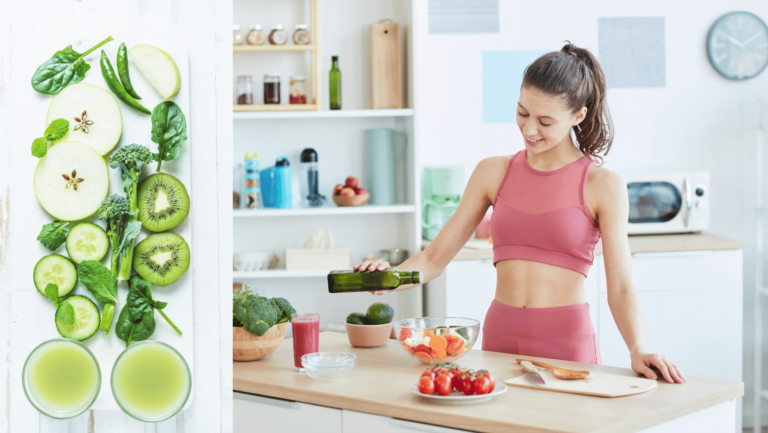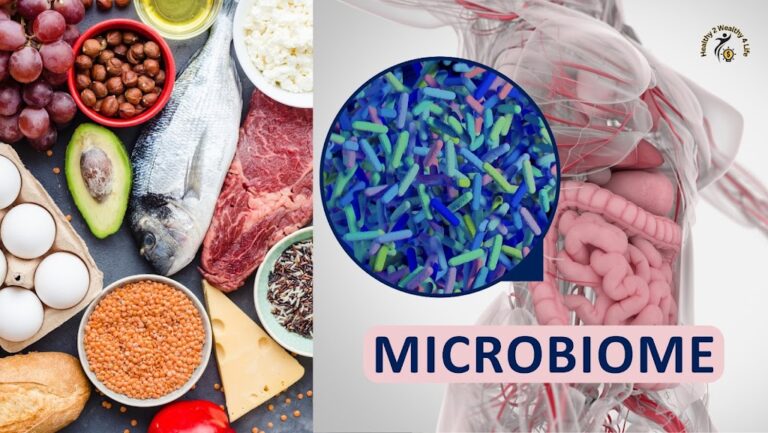Banana Smoothies Might Not be a Wise Choice
Why Adding a Banana Smoothies Might Not be a Wise Choice In the realm of health and nutrition, the allure of smoothies as a quick and easy way to pack in essential nutrients has gained immense popularity. However, recent research has shed light on a surprising revelation the addition of a banana to your smoothies might not be as beneficial as previously thought. we delve into the depths of this new scientific insight to bring you a comprehensive understanding of why reconsidering the inclusion of bananas in your smoothies could be a prudent decision.
The Chemistry Behind the Combination
Bananas, recognized for their natural sweetness and creamy texture, have long been a staple in smoothie recipes. However, the intricate interplay of nutrients within this tropical fruit can have unexpected consequences when blended. A prime example is the interaction between bananas and certain proteins present in dairy or plant-based milk, which could potentially hinder the absorption of essential minerals like calcium.
Balancing Blood Sugar A Delicate Equation
Smoothies often serve as a go-to option for individuals seeking to manage their blood sugar levels. Nevertheless, the high natural sugar content of bananas could tip the balance in an unfavorable direction for those aiming to control their glucose levels. Incorporating other low-glycemic fruits like berries or incorporating leafy greens can provide a more gradual sugar release, helping to maintain stable blood sugar levels.
The Fiber Factor
Fiber, celebrated for its digestive benefits, is another consideration when contemplating the banana-smoothie combo. While bananas do offer a decent amount of dietary fiber, the blending process might break down some of the insoluble fiber present in the fruit. This could potentially impact digestive regularity – a factor that can’t be ignored when crafting a nutritious and balanced smoothie.
Embracing Variety for Optimal Nutrition
Diversity in nutrition is a key principle for overall wellness, and this holds true in the realm of smoothie preparation. Opting for a monotonous blend of ingredients, dominated by bananas, might inadvertently lead to a shortfall in essential nutrients that other fruits and vegetables provide. By embracing a broader spectrum of produce, you can ensure a more well-rounded and nutritionally complete smoothie.
Crafting Your Ultimate Nutrient-Packed Smoothie
Now that we’ve explored the intricacies of the banana-smoothie relationship, it’s time to reimagine your approach to crafting these wholesome beverages. Here’s a suggested recipe that takes into account the recent research findings:
Berry-Bursting Banana-Free Delight
Ingredients:
- 1 cup mixed berries (strawberries, blueberries, raspberries)
- 1 cup spinach (for an added nutrient boost)
- 1/2 avocado (for creaminess and healthy fats)
- 1/2 cup Greek yoghurt (or non-dairy alternative)
- 1 tablespoon chia seeds (for fibre and omega-3s)
- 1 teaspoon honey (optional, for sweetness)
- 1 cup water or almond milk (adjust for desired consistency)
Instructions:
- Combine all ingredients in a blender.
- Blend until smooth and creamy.
- Pour into a glass and enjoy the nutrient-packed goodness!
The Takeaway
In the ever-evolving landscape of nutrition science, it’s crucial to adapt our dietary choices based on the latest insights. While bananas undeniably offer an array of health benefits, their role in smoothies might warrant a second thought. By diversifying your smoothie ingredients and being mindful of potential interactions, you can craft beverages that not only tantalize your taste buds but also optimize your overall well-being.
Remember, the journey towards optimal health is a dynamic one, guided by informed choices and a willingness to embrace new discoveries. So, as you embark on your next smoothie adventure, consider the insights we’ve shared to make each sip a step towards a healthier you.
FAQs
Q1: Are bananas a healthy addition to smoothies?
A1: While bananas do offer several health benefits such as potassium and vitamin C, recent research suggests potential interactions with other ingredients in smoothies. It’s essential to consider your specific health goals and the overall nutrient balance of your smoothie.
Q2: What nutrients do bananas bring to smoothies?
A2: Bananas provide natural sweetness, potassium, vitamin B6, and dietary fiber to smoothies. However, the high sugar content in bananas could impact blood sugar levels, and their fiber might be affected during blending.
Q3: Can adding a banana affect digestion?
A3: The fiber in bananas can contribute to digestive health, but blending might break down some of the insoluble fiber. This could potentially impact digestion, making it important to incorporate other high-fiber ingredients in your smoothie.
Q4: How can I manage blood sugar levels when making smoothies?
A4: To manage blood sugar levels, opt for low-glycemic fruits like berries, incorporate protein and healthy fats, and avoid excessive amounts of high-sugar fruits like bananas. This can help prevent rapid spikes and crashes in blood sugar.
Q5: Are there alternatives to bananas in smoothies?
A5: Absolutely! You can replace bananas with ingredients like avocado, chia seeds, or nut butters for creaminess and nutrition. Experiment with a variety of fruits and vegetables to find combinations that suit your taste and health goals.
Q6: Can I still enjoy bananas in my diet?
A6: Yes, bananas can still be part of a balanced diet. Enjoy them as a snack or in other meals to benefit from their nutrients. When it comes to smoothies, considering a mix of fruits and vegetables can provide a broader range of nutrients.
Q7: What are some alternatives to traditional banana-based smoothies?
A7: You can try a “Berry-Bursting Banana-Free Delight” by blending mixed berries, spinach, avocado, Greek yogurt, chia seeds, and honey for a nutrient-packed smoothie. Check out our suggested recipe for more inspiration.
Q8: How can I ensure my smoothies are nutritious and balanced?
A8: To craft nutritious and balanced smoothies, aim for a mix of fruits, vegetables, protein sources, healthy fats, and sources of dietary fiber. Experiment with different ingredients to find combinations that suit your taste and dietary preferences.
Q9: Should I consult a healthcare professional before making dietary changes?
A9: If you have specific health concerns or dietary restrictions, it’s recommended to consult a qualified healthcare professional before making significant changes to your diet. They can provide personalized guidance based on your individual needs.
Q10: Where can I find more information on healthy eating and nutrition?
A10: For more information on healthy eating, nutrition tips, and wellness advice, explore the articles and resources available on our website. Our experts are dedicated to providing valuable insights to support your journey towards well-being.
Q11: What are the health benefits of banana smoothies?
An 11: Banana smoothies are like the superheroes of the culinary world they not only taste delicious but also come packed with some awesome health benefits. Let’s dive into the goodness! First off, bananas themselves are a powerhouse of nutrients. They’re rich in potassium, which is like a ninja warrior for maintaining healthy blood pressure and fluid balance in your body. And you know that satisfying creaminess you get in a smoothie?
That’s thanks to the natural fibre in bananas.
Fibre is like your body’s cleanup crew it helps keep your digestive system in tip-top shape and can even keep you feeling full for longer, which is a win for anyone trying to manage their weight. Now, imagine adding some yoghurt or milk to your banana smoothie.
You’re getting a dose of calcium for strong bones and teeth. Plus, if you go for the Greek yoghurt, you’re also getting a protein punch, which can help with muscle repair and growth. And if you’re feeling adventurous and toss in some spinach or kale, you’re boosting your smoothie’s vitamin and mineral content even more. These leafy greens are like nature’s multivitamins, loaded with vitamins A, C, and K, as well as iron and antioxidants.
But here’s the real kicker the convenience. Whip up a banana smoothie in minutes, and you’ve got a portable, nutrient-packed meal or snack that you can enjoy on the go. It’s like a mini vacation for your taste buds and your body.
Of course, moderation is key. While banana smoothies are chock-full of benefits, they can also pack in some calories, especially if you load up on sugary add-ins. So, keep it balanced and enjoy the smoothie goodness as part of a well-rounded diet. Cheers to sippin’ on health and happiness
Q12.How would using frozen bananas instead of fresh bananas affect the taste and texture of your smoothie?
Using frozen bananas in a smoothie can make it thicker and colder compared to using fresh bananas. The taste remains similar, but the texture becomes creamier and more akin to a milkshake. Additionally, frozen bananas may slightly intensify the sweetness due to the natural sugars concentrating during freezing.
Q13.Is Banana Smoothie good for weight loss?
Banana smoothies can be a part of a weight loss plan when consumed in moderation and as part of a balanced diet. Bananas provide nutrients and fibre, which can help you feel full and satisfied. However, be mindful of portion size and the ingredients you add, as excessive calories or sugar can hinder weight loss efforts. Incorporating other fruits, vegetables, and sources of protein can make your smoothie a more balanced and weight-friendly option.
Q14.Can I just drink banana smoothie after a training without some protein powder and gain some muscle?
A banana smoothie alone may not provide sufficient protein for optimal muscle recovery and growth after a workout. Protein is essential for muscle repair and growth. Including a protein source like Greek yogurt, milk, or a protein powder in your smoothie can be beneficial for post-workout muscle recovery and development.
Q15.What are the health benefits of yogurt-banana smoothies to babies?
Yogurt-banana smoothies for babies provide essential nutrients like calcium and protein, supporting growth and development. The probiotics in yoghurt promote a healthy gut and immune system. The smooth texture is appealing, encouraging nutrient intake, while fibre aids digestion. Always introduce age-appropriate foods under paediatrician guidance, avoiding added sugars.





